Your 27 Week Old Baby – Development, Milestones & Care

- A 27-Week-Old Baby’s Development
- A Twenty-Seven-Week-Old Baby’s Milestones
- Baby Feeding
- Sleeping
- A 27-Week-Old Baby’s Care Tips
- Baby Products That 27-Week-Olds Need
- Tests and Vaccinations
- Games and Activities
- When to Consult a Doctor?
- FAQs
Your baby is now 27 weeks old, and their growth and development continue to amaze with each passing week. At this stage, your little one becomes more interactive, curious, and expressive, reaching exciting milestones reflecting their emerging personality. Their feeding and demands only get higher as you find them waking up several times in the night crying from hunger. From mastering new skills to forming deeper connections with you and the world around them, your little one is on a captivating journey of growth and exploration. If you’re wondering what your baby at 27 weeks should be doing, then continue reading, as here’s everything you need to know:
A 27-Week-Old Baby’s Development

This phase is quite a busy time for your baby; they are developing physically, socially, emotionally, and cognitively. You will notice that they increasingly become aware of what they want and even show a little anger in their shrieks when things don’t go their way. You will also see their bodies working all day and all night on mobility skills.
[Also Read: 6 Months Old Baby Development]
A Twenty-Seven-Week-Old Baby’s Milestones
Babies grow at different rates, and not all reach their development milestones at the same time. Quite often, they show up when you are least expecting. By 27 weeks, some babies are just sitting, some may be crawling, and some seem to cruise. Since reaching milestones occur in a broad time frame, try not to worry if your baby is a late bloomer. However, consult their paediatrician if you notice any problems. Here are general pointers on what you can expect:
- You’d find your baby is quite happy on their tummy, rolling or trying to get up (1). This is an excellent time to help them sit upright. Support them in a sitting position while playing so they develop that important motor skill.
- Some babies might begin to lose teeth by this time, and you can help ease their toothache by cold foods and teether toys. Pay attention to their moods and behaviours, and if you see that their gums are red or swollen, ease the pain with a cold teething ring.
- By now, they will start understanding your facial expressions and related emotions. They can tell when you appreciate what they are doing and when you are annoyed. They can differentiate between surprised, happy, fearful and sad faces and the vocal tones associated with them (2).
[Also Read: 6 Months Old Baby Milestones]
Baby Feeding
You can now introduce solid foods to your baby without hesitation. The belief in the past was that delaying the commonly allergenic foods lowered their risk of allergies. New research says that it is just the opposite. Introducing as many different types of foods as early as they begin on solids is an excellent way to boost their immunity. Common allergenic foods such as eggs, nuts, wheat, soy, dairy, seafood, etc., should all be introduced in small quantities as soon as the solid foods begin. They can be introduced to nuts safely through nut butter; however, they should avoid honey, fast food, sweet desserts, and junk food (5).
Introduce your baby to different types of spices, herbs, and foods commonly used in your family, and rather than making separate meals for them, see what you can adapt to suit the baby’s needs.
[Also Read: 6 Months Old Baby Food]
Sleeping
A 27-week-old baby should sleep around 12-16 hours a day (6). Babies fuss during sleep time if they are emotionally drained or fatigued and ache from a whole day’s playtime. Their sensory inputs throughout the day can also be overwhelming, and they can get cranky by the end of the day, requiring reassurance and comfort to settle down. By watching them throughout the day, you can quickly learn when they have had too much activity and step in to help them relax. Research also shows that a 30-minute nap after any new task helps them remember and apply it the next time.
[Also Read: 6 Months Old Baby Sleep]
A 27-Week-Old Baby’s Care Tips
- Now is an excellent time to baby-proof your house. As babies learn how to crawl, you’ll notice that all the stuff on the shelves within their reach begins to come off. This is the right time to fasten the shelves to the walls and buy gates that seal off stairs and other dangerous areas like the balcony, kitchen, and bathroom. It’s also important to plug open electrical sockets (3).
- They may like bearing weight on their legs when you hold them upright. Allow them to do it; the weight on their legs stimulates the muscles to develop strength and gross motor control. Don’t listen to the old wives’ tale that it would make them bandy-legged. If they enjoy it, allow them to bear weight on it. On the other hand, don’t force them to do it if they show signs of displeasure.
- Pick them up and comfort them often. Experts agree that spoiling a child with too much love within their first year is impossible. If you worry that picking your baby up at their first whimper spoils them, try figuring out why they may cry.
- Your baby can now choose their first comfort object or “Lovey”- a teddy bear, a soft blanket, or any toy that they’ll favour and stick to for years to come. These are what experts call “transitional objects” as they help infants bridge the gap between dependence and autonomy. They offer comfort and reassurance when you’re not around. So whatever they pick, try and buy several others just in case.
- This is also a good time to work on separation anxiety; it can be tough on both the baby and the parents. Try spending a little time away from them every day while they are being looked after by another family member or a caretaker. Start with a ritual: hug and kiss your baby, hand them over their lovey, and leave. Do not drag your departure, even if they are crying. They’ll be fine two minutes after you walk out of the door.
[Also Read: 6 Months Old Baby Care]
Baby Products That 27-Week-Olds Need
Introducing the right products into your baby’s life can enhance their comfort, safety, and overall well-being as they grow and develop. Here are some essential products to consider for your 27-week infant:
- Straw Cups: Encourage independent drinking and reduce spills with straw cups designed for small hands, helping your baby transition from bottles to cups.
- Suction Toys: Keep your little one entertained during mealtime or playtime with suction toys that attach securely to high chairs or tabletops, promoting fine motor skills and sensory exploration.
Tests and Vaccinations
Your baby’s vaccinations include DTaP, polio, hepatitis B, pneumococcal, and Hib, which are given together in two or three shots. They would also receive a Rotavirus vaccine, which is given orally (7).
Physical tests include:
- Weigh and measure the baby to plot it on a growth chart. It gives them an idea of their growth rate.
- Heart and lungs are examined for abnormal rhythms or breathing problems.
- The eyes are examined for congenital conditions and blocked ducts.
- The ears are examined for signs of infections and how your baby responds to sounds.
- A mouth examination is done for signs of yeast infections, such as thrush and new teeth.
- The head is checked for soft spots (fontanels) and its shape.
- The body is examined for reflexes and muscle tone, and the skin is examined for rashes. Their muscle control is also assessed while sitting, grabbing things, and engaging in other interactions. The baby’s arms and legs are moved around to look for problems in the joints.
Games and Activities
Playing games and activities is essential for your 27-week-old’s development and enjoyment. Here are two games you can try to make playtime both fun and beneficial for your little one:
1. The Hide and Eat
This game develops their fine motor skills and helps build their sense of object permanence. You’ll need a clean towel, some finger foods, and an opaque cup for this activity. The game starts with showing your baby the snack and covering it with the towel. Let the baby lift off the veil to discover the snack is still there even though they couldn’t see it a moment ago.
You can try the same game with a bit of a magician’s touch. Cover the snack with one of the opaque cups and place two other cups next to it. Shuffle the cups around, and let the children lift the cups to find their snack underneath.
2. The Great Fall
Babies love games with a surprise ending, especially one involving movement. This game develops gross motor skills and builds a sense of cause and effect. On a soft rug indoors or outdoors or on your lawn, lay down on your back with your knees raised. Your baby sits on your belly facing you while leaning back on your knees. Steady them with your hands and sway from side to side while reciting a nursery rhyme such as Humpty Dumpty. Every time the word “fall” comes into the rhyme, it sways to one side and comes back up. If needed, use some cushions on the side for safety.
[Also Read: 6 Months Old Baby Games and Activities]
When to Consult a Doctor?
Ensuring your baby’s health and safety is a top priority for any parent. Here are some tips to help you recognise the signs that indicate it’s time to seek advice from your doctor.
- Your baby doesn’t respond to sound stimuli by turning towards the sound.
- Their eyes do not follow you or move objects, and sometimes appear cross-eyed.
- You notice something is off with how they crawl, favouring one limb over another or tilting sideways.
- They show allergic reactions to new foods you may try to feed them.
- Their bowel movement is dry and pellet-like.
FAQs
1. What are common challenges parents might face at this stage?
Parents may encounter challenges related to sleep regression, teething discomfort, and separation anxiety as their baby becomes more aware of their surroundings and forms stronger attachments. Additionally, keeping up with a busy, increasingly mobile baby can be physically demanding.
2. How can parents support their 27-week-old’s development?
Parents can boost their baby’s development by encouraging supervised tummy time, providing plenty of opportunities for this crucial activity, offering colourful toys to grab and explore, engaging in interactive play, and maintaining a consistent daily routine to promote feelings of security (4).
Each baby develops at its own pace and eventually reaches milestones. Wait patiently for your baby to reach those milestones. In the meantime, enjoy the parenting journey.
References/Resources:
1. Important Milestones: Your Baby By Six Months; Centers for Disease Control and Prevention
https://www.cdc.gov/ncbddd/actearly/milestones/milestones-6mo.html
2. Your baby’s growth and development – 6 months old; Pregnancy, Birth and Baby; https://www.pregnancybirthbaby.org.au/babys-growth-and-development-6-months-old
3. Your baby’s developmental milestones at 6 months; UNICEF; https://www.unicef.org/lac/en/parenting-lac/nurturing-care/babys-developmental-milestones-6-months
4. Baby Development at 4-6 Months; Children’s Hospital of Orange County; https://www.choc.org/primary-care/ages-stages/4-to-6-months/
5. Starting Solid Foods; American Academy of Pediatrics; https://www.healthychildren.org/English/ages-stages/baby/feeding-nutrition/Pages/Starting-Solid-Foods.aspx
6. Suni. E, Vyas. N; How Much Sleep Do Babies and Kids Need?; Sleep Foundation; https://www.sleepfoundation.org/children-and-sleep/how-much-sleep-do-kids-need
7. Gagneur. A, Pinquier. D, Quach. C; Immunization of preterm infants; PubMed Central; https://www.ncbi.nlm.nih.gov/pmc/articles/PMC4685684/; August 2015
Previous Week: 26 Weeks Old Baby
Next Week: 28 Weeks Old Baby
Was This Article Helpful?
Parenting is a huge responsibility, for you as a caregiver, but also for us as a parenting content platform. We understand that and take our responsibility of creating credible content seriously. FirstCry Parenting articles are written and published only after extensive research using factually sound references to deliver quality content that is accurate, validated by experts, and completely reliable. To understand how we go about creating content that is credible, read our editorial policy here.







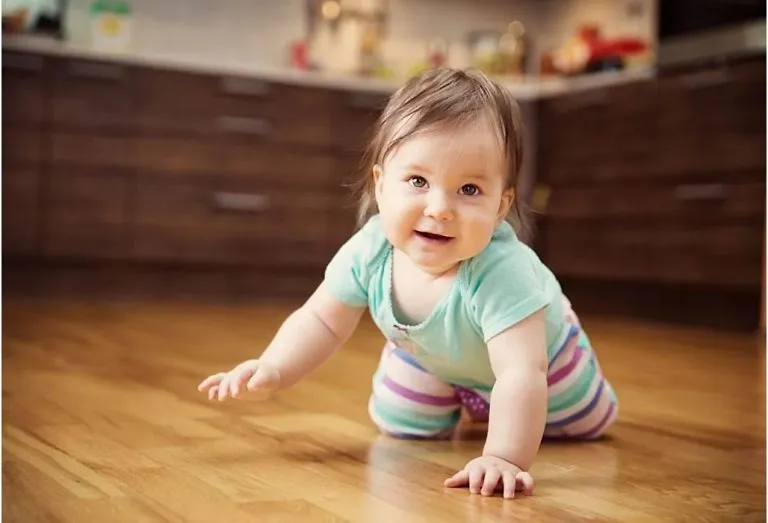
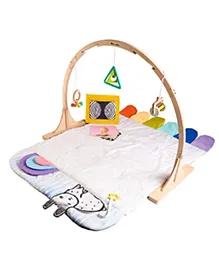
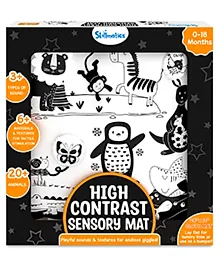
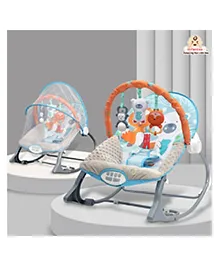
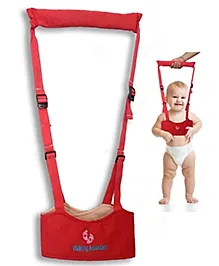
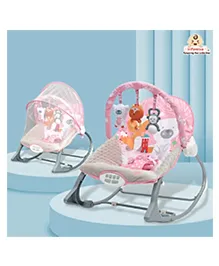

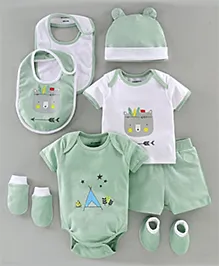
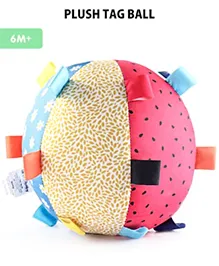
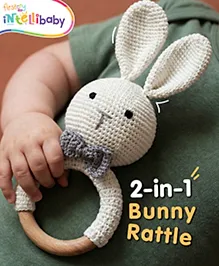
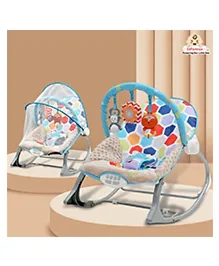

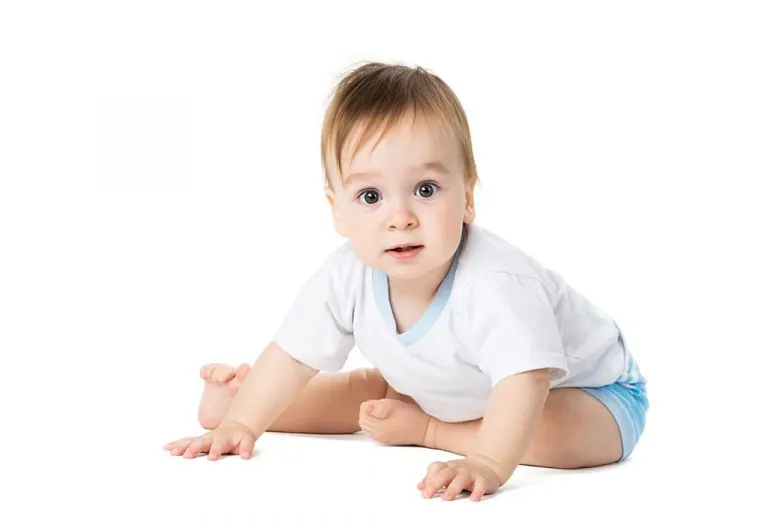


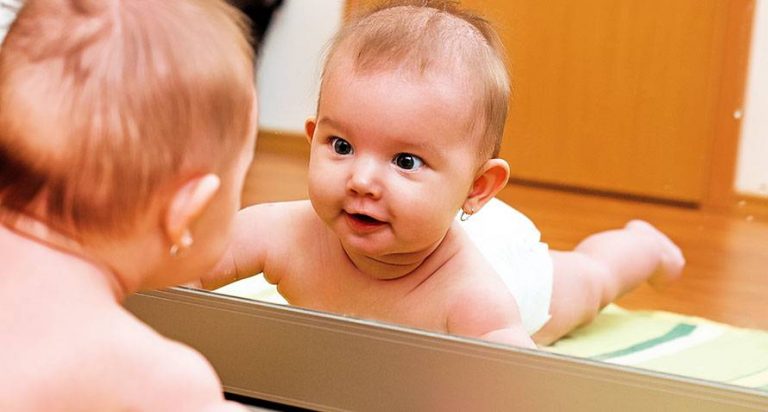


.svg)


















